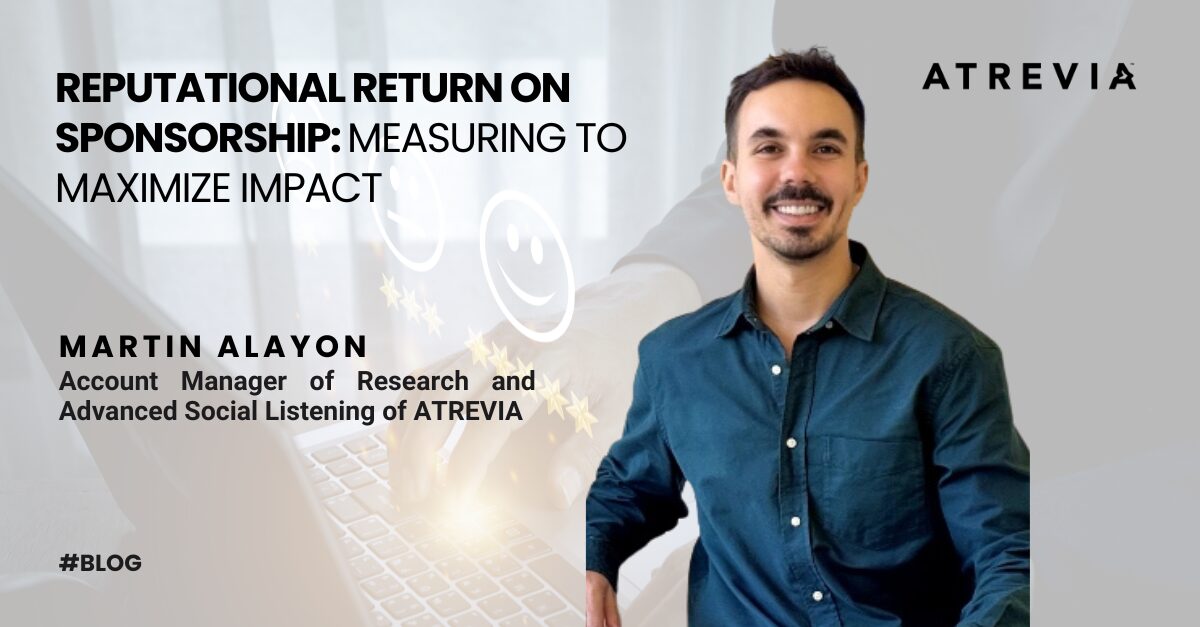
In a world where corporate reputation has become an invaluable asset, companies face the challenge of demonstrating the tangible impact of their sponsorship investments.
It is no longer enough to be associated with relevant events, causes or initiatives; now, more than ever, it is essential to measure, analyze and optimize the reputational return to make future decisions.
Sponsorships have evolved from being a simple visibility tool to become true positioning and differentiation strategies.
However, until recently, the measurement of their impact was reduced to traditional metrics such as impressions, reach or brand awareness. The key question is: how to turn something intangible into something tangible?
5 PHASES
To respond to this need, ATREVIA has developed an innovative methodology to measure the reputational return of sponsorships.
Through five phases -identification of the target audience, measurement of the knowledge achieved, impact assessment, recognition by stakeholders and impact on reputation-, this tool offers companies a radiography of effectiveness of their sponsorship strategies.
But the real disruption lies in the ability to transform this data into strategic decisions. The methodology not only quantifies reputational impact, but also allows comparisons to be made between different sponsorships, thus providing a frame of reference for investment optimization.
A clear example of this application was our work during the Latin Grammy Awards, where we measured the economic and reputational impact of Andalucía after the event.
Through this methodology, we were able to evaluate not only the media repercussion and notoriety of the event, but also its impact on the host city, obtaining interesting data such as the potential increase in tourism in the next 3 years.
Reputation is a resource to enhance the value of intangibles, the main asset of companies. In a highly competitive global environment, where trust and credibility are key determinants of business success, turning sponsorship into a data-driven strategy is not only an advantage, but a necessity.
Today, companies that stand out are not those that simply invest in visibility, but those that know how to build valuable relationships with their audiences and project their principles and commitments in an authentic way.
In this scenario, measuring the reputational impact of sponsorships not only helps to justify investments, but also turns each action into a model of good practices and leadership.
The question is no longer whether we should measure, but how to do it to lead. And the answer lies in the methodologies that make it possible to translate reputation into a driver of growth and business differentiation.